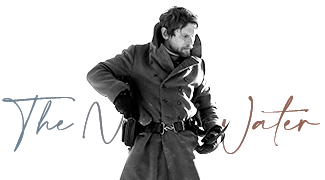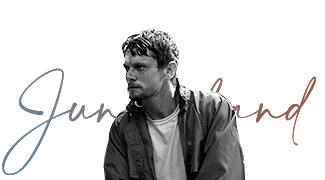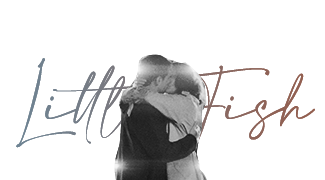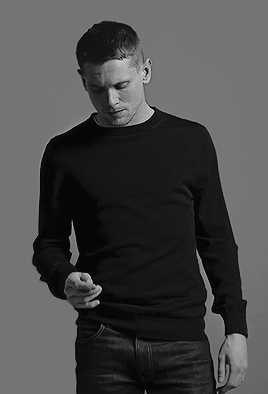Jack has done a great new interview and photoshoot for The Observer! You can check out the photos in the gallery and read the interview below.



THE GUARDIAN – Are you here to see man?” asks a Spanish waiter as I walk through the café garden, and points towards the table just beyond the loos where Jack O’Connell stands, his hand raised in a solemn hello. Yes I say. Yes I am.
To sit in the dark and watch Jack O’Connell’s work, from the very earliest characters he played (a boy accused of rape in The Bill, Pukey the skinhead in This Is England) through to self-destructive lad Cook in teen drama Skins and the boy incarcerated with his dad in prison drama Starred Up, followed by a squaddie in Northern Ireland in the Troubles film ’71, is to watch a slow portrait of contemporary masculinity. What O’Connell does, with his eyes and voice, and careful violence, is show the vulnerability beneath his characters’ cracked shells, and I’m keen now to find out how much of them is him, and how much of him is them, and what he’s learned about masculinity.
Unfortunately, though, it is 2021, and it has never been harder to talk about being a man, yet this is how we begin.
“It’s quite a… complex topic, isn’t it?” O’Connell says, taking a swig of his juice (flavour: red). “I grew up in a lot of genuinely macho environments. My dad played football for a team until I was seven, and I can still remember that musk of the dressing room.” This was Derby in the mid-90s, when his late dad, an Irish immigrant, worked on the railways. He wanted to be a footballer too, but injuries got in the way, and then a hairdresser, because it looked glamorous, and then he wanted to join the army, but his juvenile criminal record ruled that out. “The environment with my uncles was a jovial one, with hilarity, honesty.” He leans back. “I don’t think the term ‘toxic masculinity’ is very helpful though. It makes me feel… a certain way to see men’s lives getting clouded by it, and burdened.”
The waiter gives a jolly thumbs-up from across the room.
“Men are a chastised group within society. But my experience with male-dominated crowds was always that they were… gentleman.” Is he sweating slightly? He wipes his face, tanned after shooting in the North African desert, a series about (“Oh, you’ll love this”) the foundation of the SAS. “Misogyny is a pig-ugly trait, but you could also call it a self-absorbed, self-serving self-centredness. And no one likes a selfish cunt.” We relax for a second. “It’s tough. I mean, I read the Guardian. And a lot of time I feel targeted, just by virtue of being a lad.”
I feel bad. I intended this to be a gentle celebration of Jack and his trade, the question about men simply a fun way in, but of course I was ignoring the political fog that we’re sitting in. Would he like something to eat? I join him in an avocado toast. “I suppose, with my work, I’ve been able to explore ‘masculinity’, and those type of themes, and hope to do justice to the reality of them, as opposed to showing them in 2D.” O’Connell started acting at school, where drama classes were “a welcome change from being sent to face the wall in the corridor,” and was soon accepted into the Television Workshop in Nottingham. They met twice a week and all day Sunday, and it seems to have saved him from the kind of life he went on to play on film. On the day he was starting a show at the Royal Court in London he was in real court waiting to find out if he was getting a custodial sentence; when he came to London for auditions he’d sleep on a park bench. He has a rare talent; he credits luck. “I’m hyper-aware of just how much fortune has been involved, a series of events that simply would not happen now.”
He ticks them off on his fingers. “Well. My dad got free travel because he worked on the railway. They don’t do that any more. The workshop that I trained at now has to charge people. At school, drama was compulsory, now it’s off the curriculum. I mean, I would not know how to advise a young lad from an area like mine how to get into a career like this.” He’s 31 now and has got more political with age. “Of course, I watch PMQs and listen to LBC, because, well, I pay taxes.” And what’s he seeing? “The world’s going backwards, isn’t it? Which goes against the agreement, doesn’t it? The agreement that we pay into society and hope that decent decisions will be made.” Does it make him angry? “Sometimes. Sometimes it makes me energised.”
O’Connell was 17 when he was cast in Skins, and during the rehearsal week they went to Glastonbury. They got there late on the Friday night, and were met by the original cast – the Nicholas Hoult and Dev Patel generation – for “a bit of a passing of the mantle”. There was, he remembers grinningly, “out-and-out outrageousness everywhere you looked”, and then suddenly he was famous, for playing a hedonistic criminal in what the Parents Television Council called “the most dangerous television show for children that we have ever seen”. That character, he says, was “Half created for me and half by me. Yeah, there were certain traits that bled into my own life for sure. Did I play up to it? Probably. And did I pay for it eventually? Definitely. You start thinking that really is your personality. And it’s not until things calm down a bit that you actually get a bit of clarity. So while most people were either finding their feet with their careers, or getting into higher education, we were thrust into the centre of a very popular teen programme.” He shakes his head. “It catches up with you.” What happened? “Eva, I don’t want to get myself into trouble, this is a Sunday supplement. But, you know, eventually the wheels come off and something explodes. And you start looking around eventuallygoing, ‘Oh fuck, none of my original mates want to talk to me.’” And now? “Where things are at the minute, I really, really cherish.”
After the Skins wildness had died down, O’Connell’s next big break was a call saying that Angelina Jolie wanted to meet him. She cast him as Louis Zamperini in Unbroken, about a man who competed in the 1936 Olympics, crash-landed as a Second World War bombardier and survived 47 days at sea before being made a POW for two years.(Over the decades both Tony Curtis and Nicolas Cage had been attached to star.) “Walking in for that first meeting was nerve-wracking. It’s a funny one, when you meet Americans. Because if you have a strong regional accent,” he gestures to his strong regional accent, “there’s a danger of being misconstrued as their equivalent of a conservative redneck who’d vote Trump. In Angie’s case that did not apply. Which in my experience is quite a rare thing.” When they started working together on Unbroken in 2014 she chartered a helicopter to Derbyshire to take his family out for dinner. “And working with her kind of bumped me up a few levels on the list.” The list! The list. When actors talk about the list, always with the same blank shudder, I imagine a biblical scroll, complete with social media rankings, possibly written in blood. “Right, that’s why I deleted Instagram.” Why? “George Clooney told me to. It took about three years from him giving the advice though for me to take it. It’s show business, isn’t it?”
It’s because of this that he feels some self-loathing after certain projects. “I hope this doesn’t come across as too pretentious,” he says, leaning back, “But when I’m working, I like to be as unselfconscious as possible. If you’ve watched yourself a lot, it can find its way into your thought process, and for me it started to border on vanity. So I’ve knocked social media on the head for a bit. The best art happens by accident, when you’re not deliberately trying to manufacture something, you’rejust zoned in and present, not when you’re thinking about how it’s going to look on telly.” The social media sobriety started at the beginning of the pandemic, when O’Connell moved back to Derby with his mum. Every weekend during the lockdowns they went to the virtual pub – the Bell & Castle on Burton Road did a live feed – “and it gave us all a big Saturday night in. GenuinelyMade a huge difference.” He learned to make pizza. His lockdown was, he says smiling, “not extraordinary”. By which he means, exactly how he likes it.
We’re meeting to talk about The North Water, a beautiful but grim survival drama set on an 1850s whaling ship. It was shot in the Arctic on two boats – one modern, with a bar from which O’Connell and his co-stars Colin Farrell and Stephen Graham would stare at the glaciers with a pint in hand, and the other a replica of a period whaler. Viewers who haven’t read the novel that writer-director Andrew Haigh based the series on get a hint of what’s to come from the Schopenhauer quote it opens with: “The world is hell, and men are both the tormented souls and the devils within it.” O’Connell plays ship’s surgeon Patrick Sumner, a man who attempts to bring order to an increasingly brutal voyage. There is blood, there is devilry. But apart from that, it sounds like it was lovely. “It was amazing – the constant awareness of the threat of polar bears, occasional visits from walruses popping up from under the ice. It made for something altogether unforgettable. And I was dying to work with Andrew Haigh. He’s got an element of sadism to him; he takes a weird sense of pleasure in the darker stuff.” Which O’Connell revels in.
“With any actor, you try to work out what they need from you as a director,” Haigh tells me. “Some actors want to be looked after, others wantto be pushed. Jack wants to be hurled into the air without a crash mat. If I am something of a sadist for sending us up to the freezing Arctic in the pursuit of authenticity, then he’s undoubtedly a masochist when it comes to crafting his performance. He is so deeply committed to finding the gnarly truth of a moment.” Preparing for scenes, Haigh would watch O’Connell retch and swear and howl. “I remember once trying to persuade him that he didn’t need to throw up for real. He was having none of it.” He adds, “I think Jack was interested in playing someone actively questioning how to live among men rather than blindly following, a man trying to break free from the constraints of traditional masculinity.”
Colin Farrell plays Sumner’s sociopathic counterpart, a hulking harpooner called Drax – a man who enjoys a kill and moves among the crew like a violent bear; the two men are drawn to each other, despite themselves. Farrell poured himself into the character, bulking up on multiple breakfasts, sleeping on the replica ship, not washing for weeks. “And you didn’t even get to experience his smell. The smell of man it was.” He chuckles darkly. “Notes of cheeseburger.”
One of the things O’Connell has learned in his half a life of acting is that, if he’s lucky, he can walk away from a project with more than just a paycheque. “Remember, I didn’t experience higher education, so any role that I play is a gateway – this was a gateway into reading the Iliad and philosophy. Stuff I wouldn’t have found if I was still milling about Derby. It’s made me want to go back to school. I’m going to study history.” What would he be doing if he wasn’t doing this? “Honestly, nothing good.”
It’s this knowledge that means, when he’s not working, he likes to play golf. “Likes” is perhaps not the correct word. He does it so the time off doesn’t pull him under. “You’ve got no choice with golf but to be there for three hours. I’ve taken it up in a big way because it’s long and you’re outdoors, and it fills time, which, you know, is good for me. The devil makes work for idle hands.”
Then his juice is gone and suddenly we’re talking about men again, and he’s worried he’s going to be misunderstood. The conversation slows, from a jaunty sprint to an awkward plod, as though we’re walking through treacle. “I’m wanting to ask you to look after me here, you know,” he says. “I wish we could have a better conversation about this, but it’s so easy to sound like you’re fighting for the other side…” I’m not trying to set him up, I promise. I want to talk about masculinity from the perspective of a man who has spent his career going to physical extremes to show the vulnerability of violent men, and how what it means to be a man has changed since he was growing up. “Right,” he says. “Cook worked at the time because laddishness was part of his world – we were watching Booze Britain and Geordie Shore. I wonder what that character would look like today. Thank you for that thoughtful summation of my career. I feel ‘seen’. But it’s so… quizzical. Your own identity is one of the most challenging things to understand. As a man, you have your own power and agency, and it’s about learning where that is beneficial, and where it’s poisonous. That’s not a phenomenon that’s particular to men though; we’re all trying to work out what our meaning is aren’t we? And we’re all fallible.” He picks at his uneaten avocado thoughtfully. “I’m trying to listen more. I’m trying to be better.”
The North Water slows into a more existential horror story as the episodes pass, and Sumner must find increasingly extreme ways to stay alive on the ice. I ask O’Connell about a scene steeped in pain and madness, where, having killed a polar bear he climbs into her warm guts and lies inside its skin waiting for death. “I have no prior experienceobviously, of being devoured,” he says, sensibly, “So I just thought, OK,” and he raises his eyes, his brow set with a familiar gravity, “Let’s make this sexy.’” And then he cracks up.
















